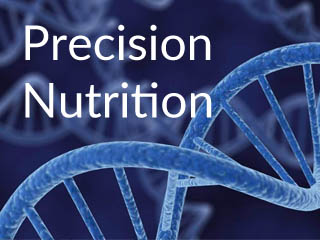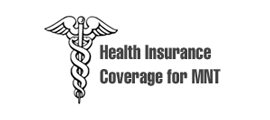We all have cancer cells in our body.
Cancer cells develop when a cells genetic signaling is interfered with or altered. This can happen in a number of ways. Environmental toxins, viruses, parasites, bacteria, nutrient deficiencies and stress can all trigger cancer cells to grow out of control. Normally, the immune system is able to engulf the mutated cells and destroy them before they grow out of control. When the immune system is compromised, cancer cells thrive and multiply. The goal is to boost the immune system and eliminate or limit the causes that contribute to cancer growth.
Environmental toxins such as heavy metals, chemicals, pesticides, synthetic hormones can be found in our soil, pollution, cleaning products, make up, food and water supply, drugs and cigarettes. Toxins are now showing up in excessive amounts in the umbilical cord of unborn babies. We now know that toxins are actually crossing over the placenta and coming in contact with developing tissue in the womb.
http://www.ewg.org/reports/bodyburden2/execsumm.php
We are being inundated with chemicals far more today than 30 years ago. Children are being born toxic. This can have immediate effects to the body’s immune function, DNA signaling and ability to detoxify the body naturally. This may lead to more autoimmune disorders and an even greater need for diet therapy and natural supplementation.
We are also exposed to viruses, parasites, and bacteria on a daily basis. Many live on and in our bodies. A low immunity can lead to an environment where these microbes flourish leading to cellular damage. This leads to oxidative stress of our cells. Oxidative stress is a natural part of cell control in our bodies. Cells in our body are constantly dying off and replacing themselves (also known as aging). Excessive oxidative stress can accelerate cells death and replacement which puts the body at risk for more genetic mutations. A normal immunity is essential in keeping these buggers at bay and away from destroying healthy cells. A healthy immunity ultimately slows aging and preserves healthy cell function.
Poor eating habits contribute to cancer growth as well. A diet high in processed and refined grains and sugar is a feeding ground for cancer cells. A diet low in antioxidants, which help control oxidative stress, contributes to the risk of cancer. Many Americans eat a highly processed diet that is low in essential nutrients that aid in the detoxification process and create imbalances. There are studies that show a correlation between low glutathione levels and cancer. Eating high amounts of refined grains and sugars also lead to a diet high or low in certain nutrients specific for healthy cell function. For example, a diet high in grains are typically high in omega 6 fatty acids and low in omega 3 fatty acids. This high imbalance of these fatty acids can contribute to more oxidative stress. The gut and intestinal tract is also effected by eating habits, lifestyle and medication use. If the gut is compromised, the body is unable to absorb vital nutrients leading to a lower immunity. Aibout 85% of your immunity starts in your gut.
Chronic stress is also linked to cancer risk. Stress involves the nervous system. The brain sends specific signals during times of stress to certain organs in the body. In particular, the adrenal glands. Chronic stress can lead to adrenal fatigue which contributes to altered hormone production, intestinal peristalsis, altered gut function, and altered brain activity.
Under stressful situations, the brain sends signals that relate to the fight or flight response. Blood supply leaves the gut and enters the extremities (legs and arms) as if ready to fight off a tiger or jump out of the way of a moving tuck. This is typically an acute stress response that only lasts for a short period of time. The body responds by telling the adrenals to release cortisol which sends high energy fats into the blood stream to be used for energy, such as jumping out of the way of the moving truck. After the event, the body returns hormones to normal and cellular function is normalized.
Chronic stress causes this to happen over a long period of time. When this happens, the gut no longer receives the blood supply it needs leading to a lack of absorption of nutrients to other cells in the body. The gut mucosal lining and HCL levels are affected. Peristalsis can occur which means fecal matter containing toxins to be released from the body actually sits inside releasing toxins back into the body. This especially effects the colon and small intestinal tract. This gut-brain effect can create a bacterial imbalance leading to more toxic build up and oxidative stress. Adrenal fatigue also occurs which leads to a disruption in other hormone synthesis. Hormone regulation is very important for metabolism and especially for sexual hormone regulation. Chronic stress leads to the release of those high energy fats to circulate in the blood stream as excessive amounts leading to oxidative stress to cells in the body.
Interestingly, during times of stress, certain parts of the brain are used. The “reflex” parts are used more than the “intelligence” parts. This is why many who are under stress can feel stuck in terms of focus. They may feel like they just can’t get out of this cycle of anxiety, fear, sadness. That is because the body is literally in instinct mode. That limits ability to long term plan and think rationally. The brain is out of balance and triggering certain signals that disrupt hormone production, nervous system signaling, digestion, heart rate, and immunity. When these are out of balance, they effect the brain. Can you see the viscous cycle?
In order to correct these imbalances, the cause of the stress needs to be addressed. Many times a person either needs to confront a problem or let it go. Holding onto fearful and sad thoughts can wreak havoc on the bodily systems. Other ways to help correct the imbalance is through supportive supplementation, exercise and diet therapy. Simple changes in foods, the use of probiotics, and digestive support such as HCL can greatly improve balance. Eating a variety of healthy foods especially high in antioxidants and glutathione stimulating foods can help boost the immunity and reduce the effects of stress. Psychological, physiological and neurological systems all have to be addressed. Starting with diet can be good way to help relieve discomfort and bring clarity to the mind in order to process those thoughts. The same can be made in reverse by focusing on changing the thoughts. This can allow more focus on healthy eating and lifestyle choices.
Many antidepressants and anxiety medications can actually make the problem worse if used for long periods of time. We now know that these types of medications effect the gut bacteria and compound the problem since the gut function is directly linked to the nervous system and brain activity.
What can you do?
Eliminate or reduce toxins in your environment. Get rid of mercury “silver” fillings in your teeth. Switch to more natural cleaning products. Avoid environmental pollutants at work and home (stop smoking). Try to eliminate medication use as much as possible and perhaps have a goal to stop medication completely. Practice good sanitation by washing hands regularly. Avoid vaccinations such as the flu shot which contain ethyl mercury. Keep your home and office well ventilated.
Buy organic foods most of the time, especially the “dirty dozen”, and wash fruits and vegetables well before eating. Eat foods high in antioxidants and sulfur rich for glutathione stimulation. Try a detoxification program at least twice a year. Get tested for deficiencies in glutathione, vitamin D and insulin levels. Eat low glycemic by eliminating processed and refined sugars and grains. Try to improve your omega 6/3 ratio by taking quality essential fatty acids. Not everyone needs excessive omega 3’s and it can actually make some cancer’s worse. A fatty acid test can reveal your levels. Eat according to your metabolic type but don’t forget to increase vegetable intake because this is the category of foods people tend to eat the least amount of in terms of requirements. Support gut function by eating foods rich in B vitamins and take probiotics regularly. If gut function is already impaired, pH and hCL levels may need to be addressed.
| List of high antioxidant foods | |||||
| Fruits | Vegetables | Beans | Nut/wholegrains | Omega 3’s | Spices |
| Berries | Kale | Red kidney beans | Pecans | Fish oil | |
| Salmon and Sardines are highest* |
|||||
| cloves | |||||
| Plums | Spinach | Pinto Beans | Almonds | Flax seed | cinnamon |
| raisins | Brussels Sprouts | Black Beans | Roasted peanuts | Walnuts | oregano |
| prunes | Alfalfa sprouts | Buck Wheat | Fermented soy | Tumeric (curcumin) | |
| Oranges | Broccoli | Oats | parsley | ||
| Red Grapes | Beets | Barley | basil | ||
| Kiwi | Red Bell Pepper | Rye | cumin | ||
| Grapefruit | Onion | ||||
| Cherries | Egg plant | ||||
| Apples | Artichoke | ||||
| List of glutathione boosting foods: |
|||||
| Fruits | Vegetables | Meats/Protein | Nuts/Seeds/grains | Spices | |
| Avocado | Asparagus | Raw goat milk | Walnuts | Cinnamon | |
| Peaches | Onion | Grass fed meats | Oats | Curcumin | |
| Watermelon | garlic | Eggs | Wheat germ | Cardamom | |
| Broccoli | Unpasteurized milk | Brazil nuts (in very s |
|||
| cabbage | Ricotta cheese | ||||
| cauliflower | Cottage cheese | ||||
| Brussels sprouts |
yogurt | ||||
| peas | Whey protein | ||||
| spinach | tuna | ||||




 Providing nutritional therapy and lifestyle education for disease prevention and weight management....
Providing nutritional therapy and lifestyle education for disease prevention and weight management....